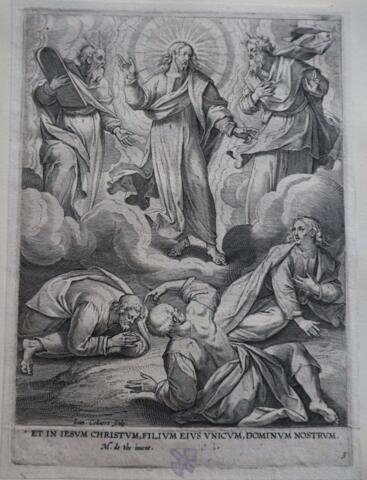Identity area
Reference code
Title
Date(s)
- 1570-1618 (Creation)
Level of description
Extent and medium
Engraving on paper
Context area
Name of creator
Biographical history
Educated at Clare Hall/College; Fellow of Clare. From 1618 to 1624 he was director to the affairs of the Virginia Company. Ferrar was ordained as a deacon in 1626 and founded the small Anglican community of Little Gidding, Huntingdonshire, shortly after his mother Mary Ferrar purchased the land there in 1624.
Name of creator
Name of creator
Biographical history
Stephen Gaselee was born in Brunswick Gardens, Kensington, London, the elder son of Henry Gaselee (1842–1926), fellow of King's College, Cambridge, and his wife, Alice Esther. His great-grandfather was Sir Stephen Gaselee, justice of the court of common pleas.
He was educated at Eton College and King's College, Cambridge (matriculated 1901). He obtained a first class in part 1 of the classical tripos (1904) and a second class in part 2 (1905). He left Cambridge in that year and, as tutor to Prince Leopold of Battenberg (later Lord Leopold Mountbatten) and travelled widely. He returned to Cambridge in 1907 and was editor of the Cambridge Review.
Between 1908 and 1919 he was Pepys librarian at Magdalene College, and became a Fellow in 1909 (which he held for 4 years).
In 1916 Gaselee entered the Foreign Office and was rewarded for this war service in 1918 by appointment as CBE. By Michaelmas term 1919 he was back in Cambridge.
On 1 January 1920 he was made librarian and keeper of the papers at the Foreign Office. He was appointed KCMG in 1935, and served the crown until his death.
In 1917 he married May Evely. They had three daughters.
He had a large number of interests he was a Latinist, Coptologist, medievalist, palaeographer, liturgiologist, and hagiographer. In 1932 he was president of the Bibliographical Society and from 1928 honorary librarian of the Athenaeum.
In 1934 he presented to the Cambridge University Library 300 early printed books, to which he subsequently added his rare and large collection of early sixteenth-century books and his Petroniana.
He died at his home in London on 16 June 1943.
Arms in Hall glass, W1.
Name of creator
Biographical history
George Nuttall was born in San Francisco, California, and was the second son of Robert Kennedy Nuttall MD, from Tittour, co. Wicklow, and his wife, Magdalena. In 1865 the family returned to Europe, and the children were educated in England, France, Germany, and Switzerland and as a result Nuttall could speak several languages. He returned to America in 1878 and entered the University of California, where he proceeded MD in 1884. Between 1886 and 1891 he studied botany and zoology in Germany. He spent further time studying in America and Germany before giving a course of lectures on bacteriology in Cambridge in 1899.
In 1901 was appointed University Lecturer in bacteriology and preventive medicine and in the same year founded the Journal of Hygiene which he edited up to the time of his death. In 1908 he founded Parasitology, which he edited until 1933.
In 1906 he was elected the first Quick Professor of Biology at Cambridge (1906 - 1931). In 1907 he became a professorial Fellow at Magdalene in succession to Alfred Newton.
He was the founder of the Molteno Institute for Research in Parasitology (later known as the Molteno Institute of Biology and Parasitology), which was formally opened in 1921.
Nuttall resigned the Quick Professorship in 1931 and became Emeritus Professor of Biology.
In 1895 he had married Paula and they had two sons and a daughter. His hobby was heraldry. He died suddenly on 16 December 1937.
Arms in Hall glass, W2
Further Reading: College Magazine, Vol. X, No. 9, December 1938 'George Henry Falkiner Nuttall' by A. S. Ramsey and David Keilin
Arms in Hall glass, W2.
Name of creator
Biographical history
Derek Pepys Whiteley was born in 1906, the son of Gerard Tarver Whiteley and the Hon. Amy Theresa Pepys. He was educated at Sherborne and King's College, and was called to the Bar from the Middle Temple in 1931. He became senior legal assistant in the Treasury Solicitor's Department, retiring in 1957; and from 1959 to 1970 was Assistant Pepys Librarian. An expert on Victorian art history, he wrote a life of George du Maurier, and articles for DNB.
Archival history
Content and structure area
Scope and content
Appraisal, destruction and scheduling
Accruals
System of arrangement
Conditions of access and use area
Conditions governing access
Conditions governing reproduction
Language of material
Script of material
Language and script notes
Physical characteristics and technical requirements
Approx. 19 cm x 14 cm
Finding aids
Allied materials area
Existence and location of originals
Existence and location of copies
Related units of description
Notes area
Note
Engraver: Jan Collaert II
Publisher: Claes Jansz. Visscher II
After Maarten de Vos
Note
From a series of prints on 'The Apostles Creed'. A later edition of the series XII. Fidei Apostolici Symbola, Iconibus Artificiosiss.
Plate 3
See MCPP/FF/FPR/B/15c for another copy.
Note
Lettered in the lower margin: "Et in Iesvm Christvm, filivm eivs vnicvm, Dominvm nostrvm."
Alternative identifier(s)
Access points
Subject access points
Place access points
Name access points
Genre access points
Description control area
Description identifier
Institution identifier
Rules and/or conventions used
Status
Level of detail
Dates of creation revision deletion
Language(s)
Script(s)
Sources
New Hollstein 726-4(4)
Hollstein 860-3(3)
